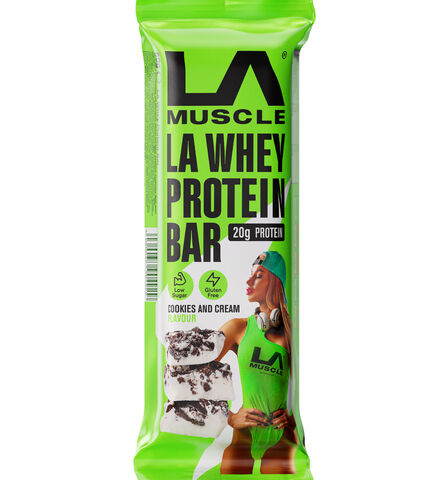The Knowledge > Exclusive Articles >
Wednesday, 18th December 2024
What Is Holding You Back from Building Muscle? An Exercise Scientist Explains
By LA Muscle on 18.12.2024 05:36 pm
 Building muscle is often perceived as a straightforward endeavour: lift weights, eat protein, and watch your body transform. However, for many, the process can feel frustratingly elusive, with little progress despite dedication. As an exercise scientist, I often encounter individuals struggling to achieve their muscle-building goals. Let’s dive into the key factors that might be holding you back and how to overcome them.
Building muscle is often perceived as a straightforward endeavour: lift weights, eat protein, and watch your body transform. However, for many, the process can feel frustratingly elusive, with little progress despite dedication. As an exercise scientist, I often encounter individuals struggling to achieve their muscle-building goals. Let’s dive into the key factors that might be holding you back and how to overcome them.
1. Inconsistent Training Routine
Muscle growth, or hypertrophy, requires consistency. If your training schedule is erratic, your muscles aren’t receiving the repeated stimulus necessary for growth. Your body needs time to adapt and respond to regular stress.
Solution: Develop a structured workout plan and stick to it. Aim for at least three to five sessions per week, targeting all major muscle groups.
2. Insufficient Progressive Overload
Progressive overload—gradually increasing the weight, reps, or intensity—is crucial for muscle growth. Without it, your muscles adapt to the current workload and stop growing.
Solution: Track your workouts and make incremental increases in weight, reps, or sets every few weeks. Strive for continuous improvement.
3. Poor Nutrition
Muscles don’t grow in the gym; they grow during recovery, and nutrition plays a pivotal role. A lack of protein, insufficient calories, or poor nutrient timing can hinder muscle development.
Solution: Focus on a diet rich in lean proteins (chicken, fish, eggs, tofu), complex carbs (quinoa, sweet potatoes, oats), and healthy fats (avocado, nuts, olive oil). Aim for 1.6-2.2 grams of protein per kilogram of body weight daily.
4. Inadequate Rest and Recovery
Muscles need time to repair and grow stronger after a workout. Overtraining or insufficient sleep can lead to fatigue and stalled progress.
Solution: Prioritise 7-9 hours of quality sleep per night. Incorporate rest days and active recovery, such as yoga or light cardio, into your weekly routine.
5. Neglecting Compound Exercises
While isolation exercises (e.g., bicep curls) are valuable, compound movements (e.g., squats, deadlifts, bench presses) recruit multiple muscle groups and are more effective for overall muscle growth.
Solution: Make compound lifts the cornerstone of your workout regimen. They’re efficient and stimulate significant hormonal responses that aid muscle growth.
6. Lack of Focus on Form and Technique
Poor form not only increases the risk of injury but also prevents you from targeting muscles effectively.
Solution: Learn proper techniques, either through reputable online resources or with the help of a certified trainer. Quality over quantity always wins in the gym.
7. Ignoring the Mind-Muscle Connection
Mindlessly going through the motions without actively engaging the targeted muscles can limit your results.
Solution: Focus on feeling the contraction and stretch of the muscle during each rep. Visualize the muscle working as you lift.
8. Unrealistic Expectations
Muscle building is a slow process, and expecting rapid changes can lead to discouragement. It takes months, if not years, to achieve significant gains.
Solution: Set realistic short- and long-term goals. Celebrate small milestones and stay patient; consistency is key.
9. Not Taking Enough Supplements
Supplements can complement your nutrition and training. High-quality products, such as LA Muscle’s scientifically proven pharma-grade supplements, can provide the necessary edge for muscle growth.
Solution: Incorporate trusted supplements like protein powder, creatine, and others to support your fitness goals. Ensure they are from reputable brands and backed by research.
10. Neglecting Individual Differences
Everyone’s body responds differently to training, nutrition, and recovery. What works for someone else might not work for you.
Solution: Track your progress and adjust your routine based on your body’s responses. Consult with a fitness professional if needed.
Building muscle is as much a science as it is an art. By addressing these common pitfalls and adopting evidence-based strategies, you can break through plateaus and make consistent progress. Remember, muscle building is a marathon, not a sprint—stay the course, and results will come.




























